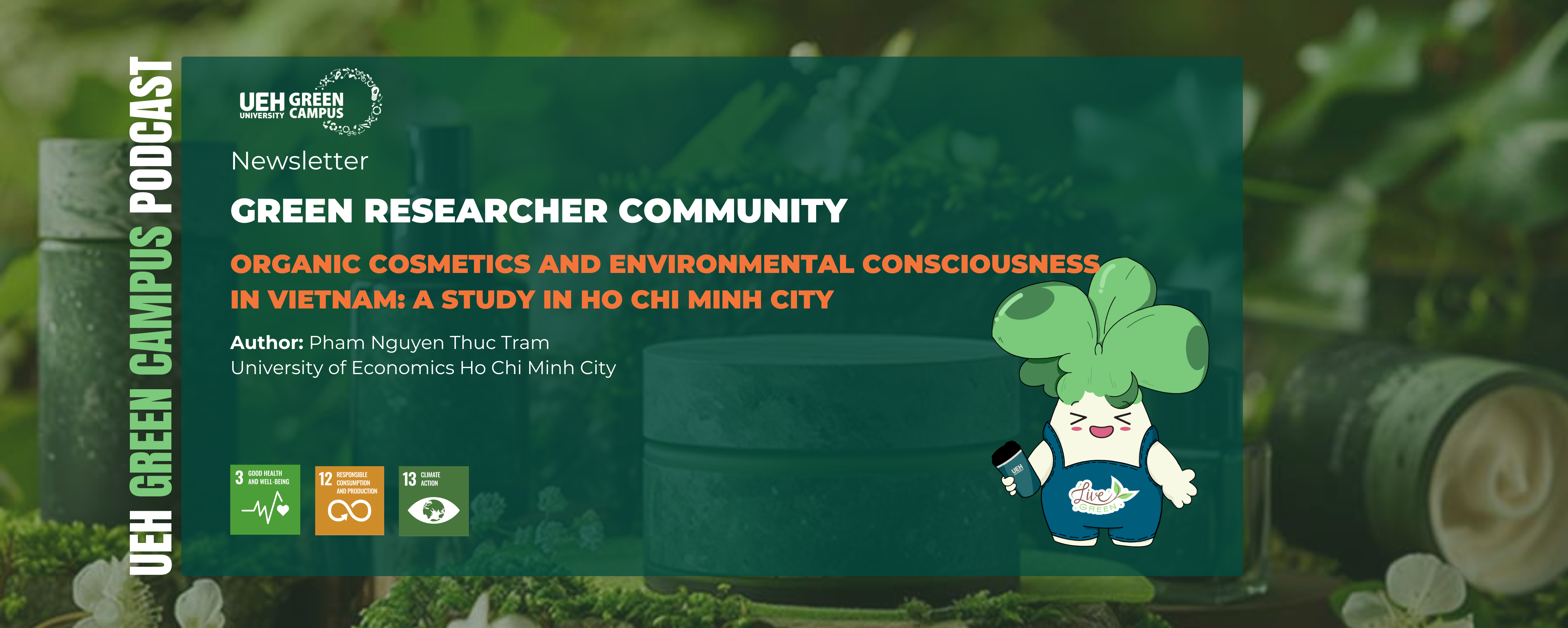Keywords: Organic Cosmetics; Environmental Consciousness; Consumer Behavior; Student Shopping Behavior; Organic Cosmetics Market; Sustainable Beauty; Green Lifestyle; Eco-friendly Products; Young Consumers
In a global context facing pressing environmental challenges, every consumer choice we make carries significant meaning, helping to shape the future of our planet. The beauty industry, an indispensable part of modern life, is also entering a new era. The concept of "sustainable beauty" is no longer a fleeting trend but a lifestyle philosophy embraced by many young people, especially students in major cities like Ho Chi Minh City. Through the research "Organic Cosmetics and Environmental Consciousness in Vietnam," a student research team from the University of Economics Ho Chi Minh City (UEH) has explored the motivations driving the younger generation towards organic cosmetics.

Beauty and Environmental Consciousness: An Inseparable Link
For centuries, beauty has been a fundamental human need. Today, with the market and technology boom, beauty products are more diverse and accessible than ever before. However, this growth also comes with worrying environmental consequences, from production to the disposal of packaging after use. As a result, a new consumer trend has emerged and is developing strongly: "responsible beauty."
The younger generation, particularly students, is not only concerned with a product's effectiveness but also its origin, ingredients, and production process. They are well aware that every product they choose can have an impact on the environment. This has opened up a significant opportunity for the development of organic cosmetics—a segment projected to become a mainstream trend in the future. Organic cosmetics are not only made from natural ingredients but must also adhere to strict standards for farming, production, and packaging to minimise negative impacts on the ecosystem.
In Vietnam, the cosmetics market is highly vibrant. However, a significant gap remains between the intention and the actual purchasing behaviour, especially for organic cosmetics. Although many young people are conscious of environmental and health issues, they still prioritise using imported products or familiar chemical brands. This poses a challenge for businesses and policymakers to identify the key factors that truly influence students' purchasing decisions regarding organic cosmetics.
Decoding Consumer Psychology: Factors Influencing Student Shopping Habits
The UEH student research has identified the strongest motivations affecting the decisions of students in Ho Chi Minh City, examined from various perspectives: psychological, social, and economic.
The strongest driver is personal health consciousness. Students are increasingly concerned about safe cosmetics that do not contain toxic chemicals or synthetic preservatives. They seek products with natural origins, extracted from benign ingredients like aloe vera, honey, shea butter, or fresh milk, which offer superior skincare benefits. This is a major advantage for organic cosmetics, leading many to prioritise them over chemical products that may irritate.
In addition to health, environmental consciousness also plays a pivotal role. For the younger generation, using organic cosmetics is not just about self-care but also a voluntary act to minimise negative environmental impact. By prioritising products with recyclable packaging, eco-friendly production processes, and ethical standards, they are transforming their purchasing behaviour into a strong affirmation of their sustainable lifestyle.
Appearance is another undeniable factor, especially for students. Beauty is a way for them to express their personality, self-confidence, and desire for social recognition. However, unlike previous generations, they are not only seeking immediate beauty but also aiming for sustainability. Organic cosmetics, with their ability to nourish and improve skin health from within, effectively meet this need.
Furthermore, product knowledge is a crucial factor. Students who have a clear understanding of product ingredients, functions, and certifications tend to have a more positive attitude and are more willing to pay for these products. Solid knowledge helps them distinguish genuine organic cosmetics from products that are merely labelled "natural" on the outside. This demonstrates that providing transparent information plays a vital role in raising awareness and promoting responsible purchasing behaviour.
Finally, price is also a barrier to consider. Although organic cosmetics are often more expensive than conventional products, many students are still willing to pay if they perceive the true value the product offers. They accept the higher price as an investment in the environment and their health. However, brands still need to find a way to balance quality and price to expand their reach, especially with this potential customer base.
From Intention to Action: A Way Forward for Businesses and Policymakers
An interesting finding from the study is that external factors are not the only influencers of students' purchasing behaviour for organic cosmetics. Pressure from friends, family, or self-control over shopping habits is not the main driver. Instead, their decisions stem from internal factors: a deep concern for health, a sense of responsibility to the environment, and excellent product knowledge. This suggests that when young people genuinely trust and understand a product's value, they will confidently make a choice, regardless of external influence.
To attract conscious young people, businesses need to do more than just conventional advertising or superficial promotional campaigns. Brands need to focus on building trust, providing truly transparent information, and supporting consumers in learning about organic cosmetics.
One effective strategy is to provide product knowledge proactively. Brands can organise small workshops, share tips on social media, or collaborate with credible beauty content creators to deliver accurate information. When equipped with enough knowledge, young people will be more confident in their choices and become loyal, enthusiastic customers.
Simultaneously, brands need to inspire through meaningful stories. Instead of just promoting products, share the core values of organic cosmetics, which are prioritising health and environmental friendliness. Authentic stories about ingredients, sustainable production processes, and positive community contributions will touch the hearts of young people, turning them from shoppers into passionate brand ambassadors.
Finally, regulatory agencies also play a significant role. It is necessary to tighten organic certification standards, prevent the sale of products, and require businesses to provide transparent information. These actions not only protect consumers but also foster a fair and competitive market that promotes the sustainable development of the beauty industry.
Therefore, to promote the growth of organic cosmetics in Vietnam, a comprehensive and in-depth communication strategy is necessary. It is not just about product promotion but also about education and inspiration. Consumers need to understand that choosing organic cosmetics is not a sacrifice in terms of effectiveness or price, but an investment in health, sustainable beauty, and a better future.
Rather than just a trend, organic cosmetics are becoming a movement, a lifestyle. Let every choice you make be a firm step toward creating sustainable beauty for yourself and for our beloved Earth.
The research article has indirectly contributed to SDGs 3, 12, and 13. View the full research article "Organic Cosmetics and Environmental Consciousness in Vietnam: A Study in Ho Chi Minh City" HERE.
Author: Pham Nguyen Thuc Tram - University of Economics, Ho Chi Minh City.
This article is part of the Green Research Community series with the message "Research Contribution for UEH Living Lab Green Campus", and UEH cordially invites the community to look forward to the next Green Research Community bulletin.
*To create optimal conditions for the development of the "UEH Green Researcher Community," community members will be able to attend a scientific research methodology class on the topics of Living Lab and Green Campus. Additionally, when a project meets the standards, the research team will receive a Certificate from the UEH Sustainable University Project Committee and financial support for a standard-compliant project.
Additional information:
SDG 3 – Good Health and Well-being aims to ensure healthy lives and promote well-being for all. This article makes a direct contribution by emphasising the role of organic cosmetics in protecting consumer health. Specifically, the article mentions that students prioritise safe products that do not contain toxic chemicals or synthetic preservatives, which helps reduce the risk of irritation and skin conditions. Encouraging the use of organic cosmetics helps to raise awareness about choosing safe and healthy products for oneself.
SDG 12 – Responsible Consumption and Production aims to promote sustainable consumption models, thereby reducing pressure on resources and pollution. This is the goal to which the article contributes most strongly. The article analyses the awareness and consumption behaviour of students regarding organic cosmetics, highlighting the motivations and challenges, and then proposing solutions for businesses and policymakers. The entire content promotes a change in consumption habits, effective management of product packaging waste, and a shift towards products with eco-friendly production processes.
SDG 13 – Climate Action calls for urgent action to combat climate change. The article contributes indirectly by highlighting the environmental awareness of students when choosing products. The behaviour of prioritising organic cosmetics, which are often associated with sustainable production processes and recyclable packaging, helps minimise environmental impact. Encouraging brands to adopt eco-friendly production practices is also an important step in reducing carbon emissions, thereby contributing to the joint effort in the fight against climate change.
News and photos: UEH Green Campus Project, UEH Youth Union - Student Association, UEH Department of Communication and Partnership Development
Voiceover: Thanh Kieu







